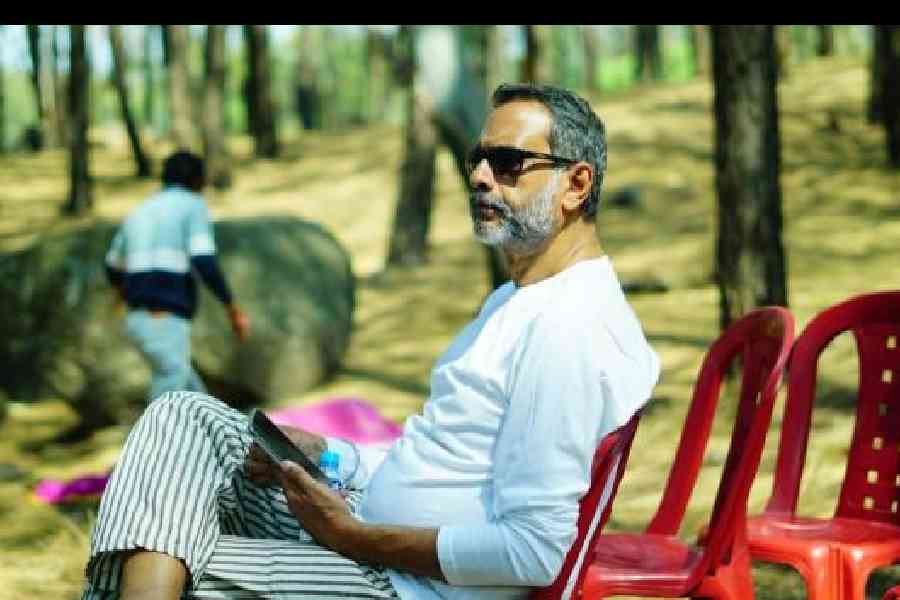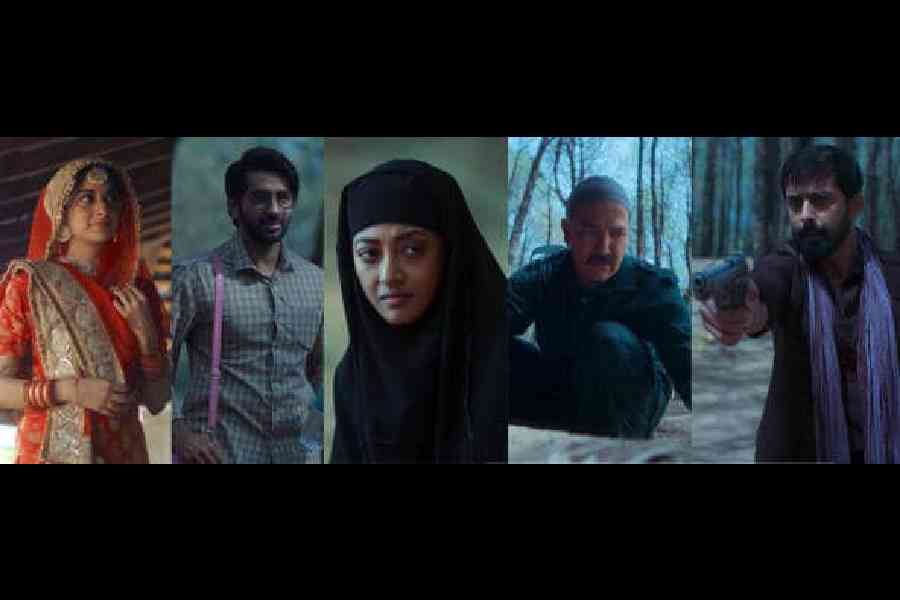Filmmaker Sanjoy Nag won a National Award for his directorial debut, Memories in March, in 2011. Having directed a number of films, Sanjoy has now turned author with the book Mujhe Jaan Na Kaho Meri Jaan. A t2 chat with Sanjoy Nag.
Did you always have this strong desire to write a book?
Desire yes but not strong enough I’d say. I somehow thought I lacked the reframing mechanism between the subjective glances and the observatory discourses while creating characters for a book, which could perhaps be befuddling.
That was also the reason why I decided to publish the screenplay as a first before I moved on to my next — which will be a collection of short stories that I am working on right now.
Why did you decide to publish a screenplay?

Sanjoy Nag
This was definitely not planned and I think a bit of the backstory might put things in perspective. When I first got stirred by this germinal cogitation, my immediate response was to make a film out of it. I collated all that was required and submitted it to the Asian Projects Market at the Busan International Film Festival in South Korea. And it got selected! Once the initial euphoria was over, it was time to start work on the screenplay, which for me was profoundly cathartic, given the multitude of enriching experiences I derived from interacting with collaborators and proficients.
The resultant screenplay, markedly in a distinct space outside the popular narrative, was favourably received from those I had shared it with. Simultaneously while waiting for the film to crystallise, I met Parag Agarwal from RedGrab Books and they decided to publish it as a screenplay. They gave it all the fragility it needed and alongside presented me with an opportunity to engage with the world of book publishing, first-hand.
On the whole, though I had started out with the idea to just make a film on a narrative that triggered a spontaneous response within me, serendipity ended up enriching me in more ways than I could have imagined when the option for publishing the screenplay was fructified. I for one thought, in the current context, this publication would help me gain traction into subsets where my film might find it difficult to ingress, and therefore decided to publish it.
Who are your favourite authors?
It keeps changing with the times, partly in accordance with my emotional reactions to situations around me. I also have this habit of reading more than one book concurrently and my present reading list includes Julian Barnes, Gour Kishore Ghosh, Moti Nandy, Rana Safvi, Mario Vargos Llosa, Toshikazu Kawaguchi. I am also cherishing a revisit to the multiple antipodal narratives surrounding our Indian epics and mythologies, for a film screenplay.
What is the genesis of the story?
During a recess at the 2014 Dialogues Film Festival, I overheard an earnestly candid conversation between two young women about the challenges their relationship encounters when one of them wanted to embrace motherhood. Their dismal lament hidden behind their specious smile amidst fellow celebrators in an otherwise joyful event still rings in my ears.
As time passed, that afternoon agreeably stayed with me and unknowingly I started looking for an expansion for a film idea. Random thoughts started flooding my mind, but I only persevered with the ones that had found residence in my heart. The palpable complexities and contradictions of the characters needed to form organically. Luckily, I had time on my side, so in the end, it was one of those turbulent but satisfactory rides.
What is the storyline?
Things become complicated when Sadaa and Bobby decide to have a baby — like any other ‘hetronormative’ couple. A simple and poignant love story between two individuals, who create their own templates and become adept at disguising their feelings and overwhelmingly intuitive understanding of emotions, to see their goals fructify. Light-hearted and funny, this romantic dramedy analyses the love story and family paradigm from the perspective of two marginalised yearning souls. A love story in its purest form devoid of the caricature mainstream Indian cinema generally employs to portray these sensitive spaces, with an all-embracing ‘other’ tag.
Tell us more about the title of the book. What’s the story behind it? Is it a tribute to the famous song? What does the song mean to you?
The title of the book is a tribute to the iconic Geeta Dutt ode to fragile endearment Mujhe jaan na kaho meri jaan from Basu Bhattacharya’s Anubhab written by Gulzar and composed by the brilliant but underrated Kanu Roy, which has been a long-time favourite of mine. The sublime grappling with risks in non-normative synergies emanating from the song stayed with me. The option to interpret the song, in more ways than one, was surely a catalyst.
What are you trying to say through the story?
To me, it is also a simple and poignant love story between two individuals, at times light-hearted and funny, which counter analyses the love story and family paradigm from the perspective of the non-confirmative marginalised yearning souls fighting for their rightful place in society. Primarily the content validated that this story needed to be told — a love story in its purest form that needed sensitivity, failing which the soul of the narrative would get lost in the chaos. So why not try and attempt a ‘new normal’?
Why pick this genre of dramedy?
I think it is easy to put across strong temperamental views by using comedy as a medium — the transmission is faster and more effective.
What’s your writing schedule?
Mujhe Jaan Na Kaho Meri Jaan was written as a screenplay for a film so the timelines sort of forced me into a schedule.
Where do you write?
Primarily in my head. The word processing is only a tool used for manifesting and sharing my idea. I would like to take this opportunity to thank Soumyasree Ghosh, for her altruistic and gratuitous collaboration during the elementary process of creating the screenplay. Also, Sankha Banerjee and Sarvesh Srivastava for the cover design.
What is your upcoming film?
My latest feature film, titled Gulab, premiered at the Chicago South Asian Film Festival recently. It is a Hindi paranormal romance noir based on an eponymous novel by Annie Zaidi and stars Tanya Maniktala, Paoli Dam, Vardhan Puri, Ujjwal Chopra and Rahul Bagga among others. Produced by Seema Mahapatra, Jahanara Bhargava, Rishi Negi, Endemol Shine and Ten Years Younger Productions, Gulab combines tropes of unrequited love with those of the paranormal; an association quite removed from the usual romance plot. Gulab’s narrative begins promisingly with the protagonist making his way to a graveyard to pay his respects to his long-lost love, after 10 years. However, this ordinary journey for closure takes on a bizarre turn when the site turns out to be the final resting place of two other women. This pursuit for the truth is interspersed with sketches of the women believed to be buried in the same grave, through the recollections of the men who loved each of them. There is also a fleeting reference to a devastating earthquake that ripped through the town where the graveyard is located, causing the permanent separation between the couple. The film is subsumed by an attempt to maintain an aura of the otherworldly.











